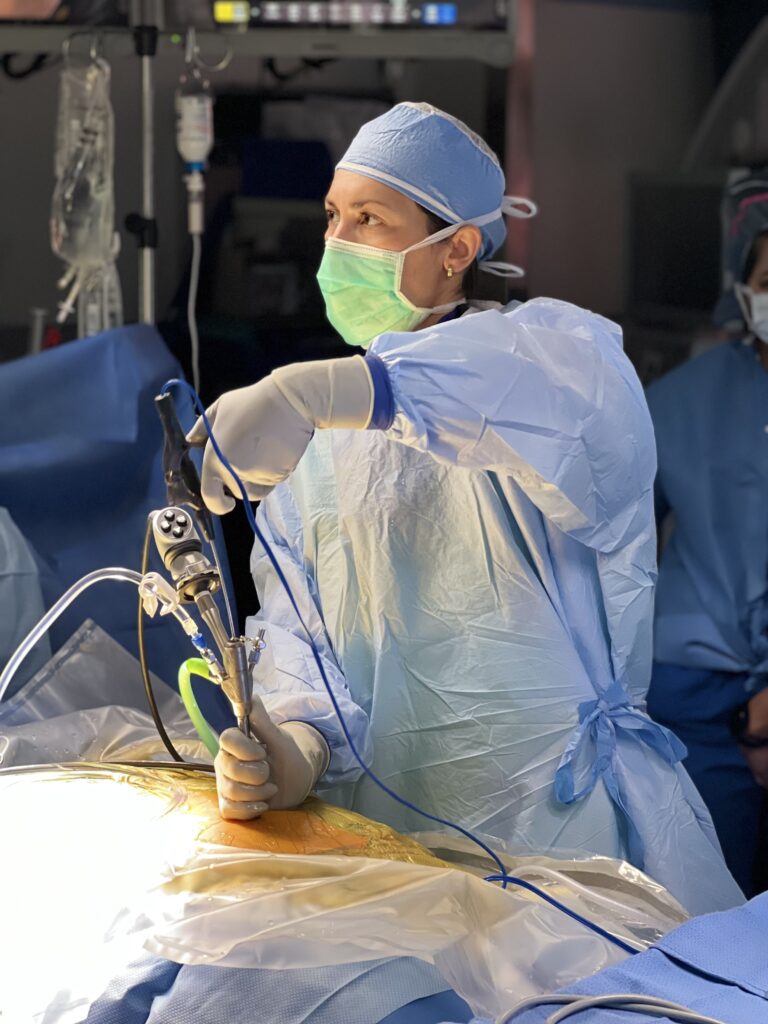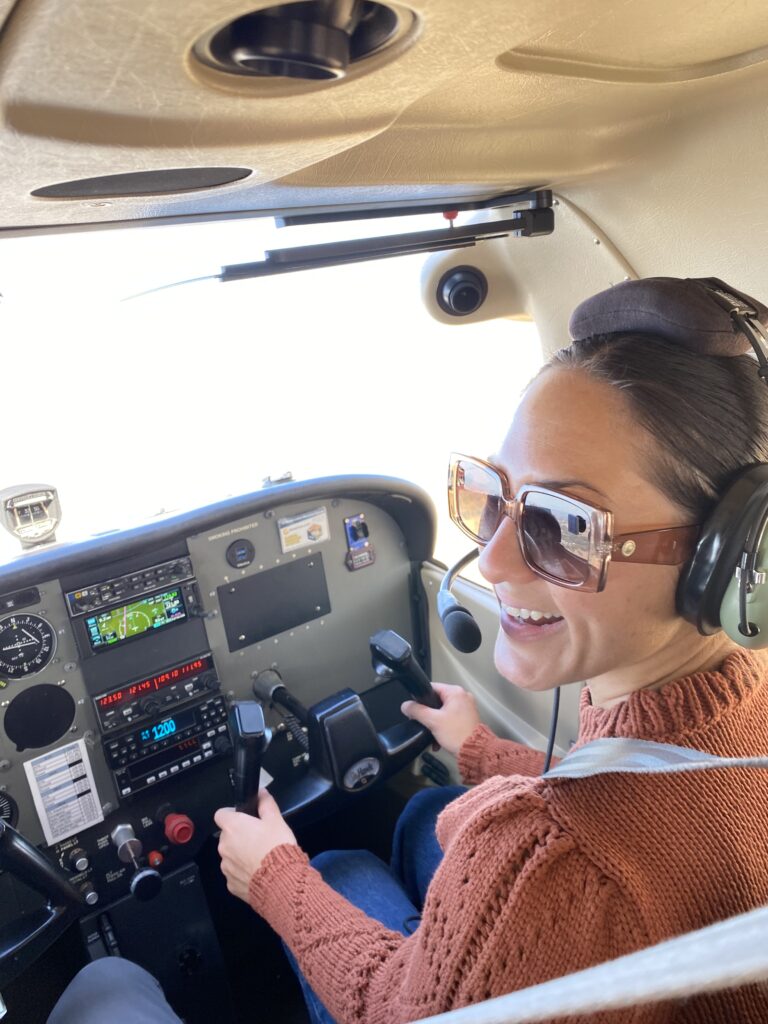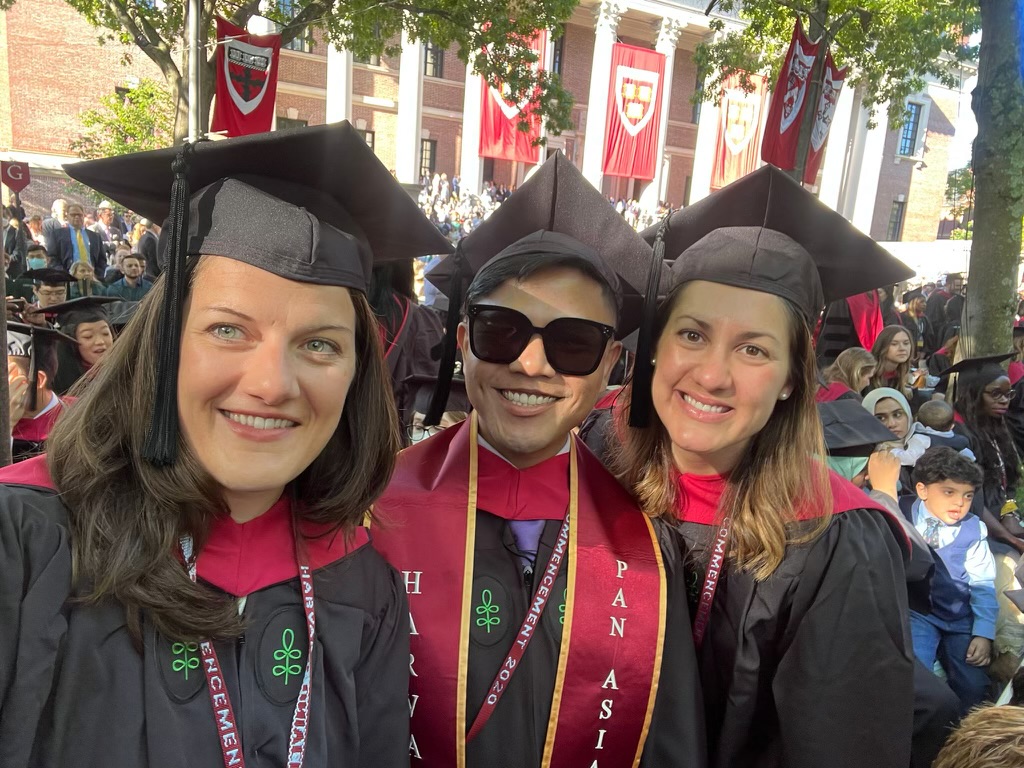Magalie Cadieux, MD, MMSc, FRCSC is wrapping up her year as a Neurosurgical Spine Fellow at Washington University. Her next step in her training journey takes her to Tanzania for a global neurosurgery fellowship.



A native of Montreal, Canada, Cadieux earned her medical degree at Université Laval in Quebec prior to completing her residency training at the University of Calgary in 2022. She also completed Harvard University’s Master of Medical Sciences in Medical Education program during her residency years, researching competency-based evaluation in surgical education, a system which is currently being piloted by the 14 Canadian neurosurgery residency programs.
As she concludes her fellowship, Cadieux looks forward to a global neurosurgery fellowship in Tanzania beginning in August, during which she will contribute to Dr. Roger Hartl’s Tanzanian Neurosurgery Program with Weill Cornell Medicine.
What initially drew you to the study of neurosurgery?
To really be honest, I was watching Grey’s Anatomy and really admired the character Dr. Shepherd. I thought he had the coolest specialty and he was portrayed as the real deal. So I entered medical school thinking I would become like him. Then I tried all the surgical specialties in observation during my first and second years of medical school and I realized that the only surgical specialty I was really into was indeed neurosurgery!
What was one of your favorite aspects of your Canadian residency training?
If it was only up to me, I would definitely say free healthcare, but unfortunately that’s a more complicated topic. Our whole residency program had a huge sense of camaraderie and that was probably highlighted with our residents’ retreat for one weekend! Those were the best memories, and they just made the whole residency process better. We would take a weekend to do activities like go to the movies, paintball, ziplining, a boat ride with music, biking in the Canadian Rockies near Calgary, and wine and beer tours.
As a female spine surgeon, what are some opportunities you see to advance the field and culture of neurosurgery?
I have never seen myself as a female spine surgeon, but as a neurosurgeon like my peers. However, I must say that practicing in the U.S. almost requires for me to acknowledge my new role/title of “female spine surgeon.” Participating in spine courses, speaking at conferences and being an active part of WINS (Women in Neurosurgery) will help promote female neurosurgeons in an academic setting as a normal standard amongst their colleagues. Similarly, differentiating myself from other types of research pathways with a specific interest in medical education and global neurosurgery offers a chance to open doors for more variety in research pathways. It’s good visibility for female neurosurgeons, too. We should never shy away from a good challenge!
Tell us some of your favorite ways to spend your time in St. Louis when you’re not in the hospital.
That is an easy one! Running in Tower Grove Park, having date nights in fancy restaurants with my boyfriend, enjoying the Art Museum, and going out for drinks at Brennan’s in the Central West End because the spot reminds me of Montreal!